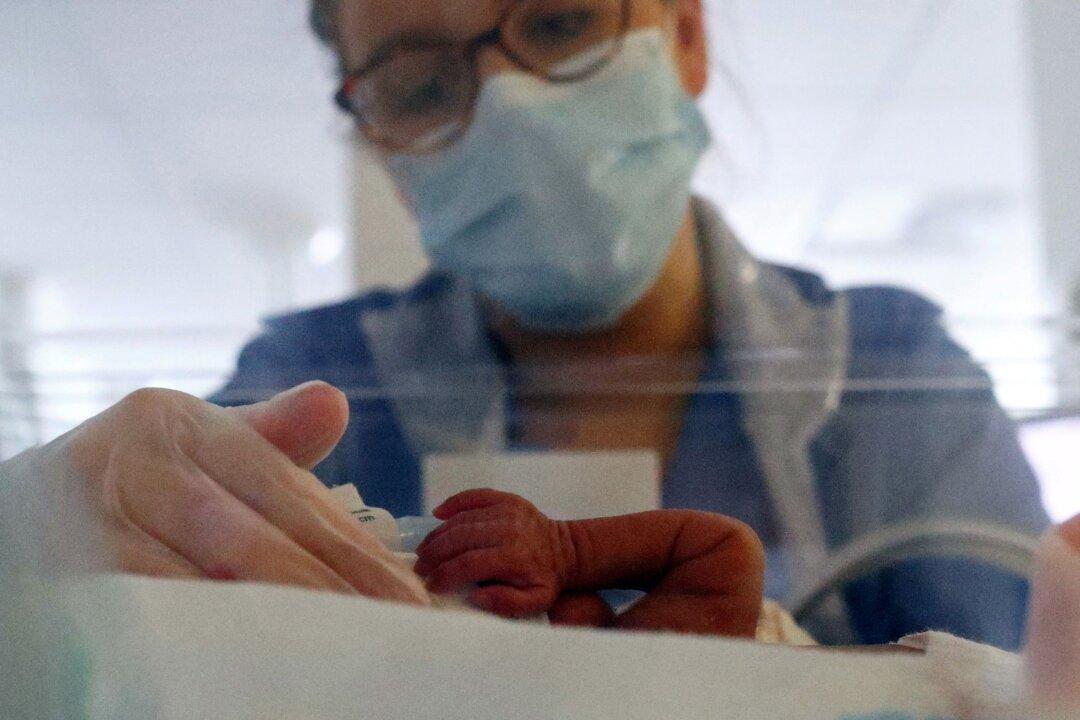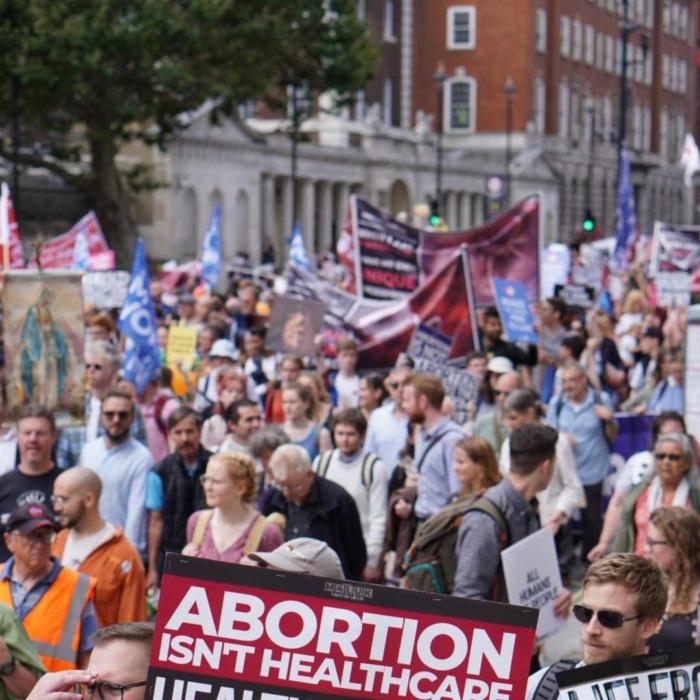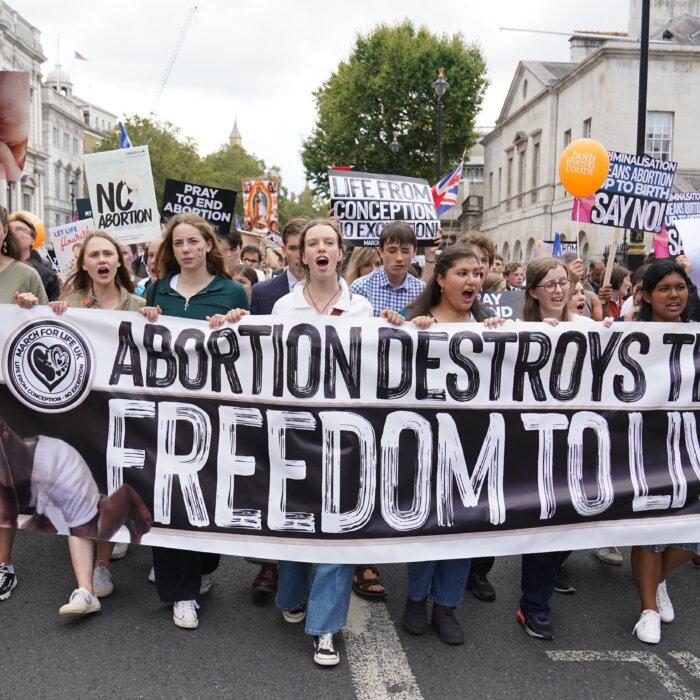Doctors are advocating to reduce the abortion limit to 22 weeks from the present 24, citing advancements in technology that allow babies to survive independently outside the mother’s womb.
In a letter to all MPs, a group of 700 doctors said that medical advancements mean that babies born in this time frame now have a good chance of survival and have urged MPs to lower the UK abortion limit.
Abortions are legal in England if a registered medical practitioner performs them and they take place within the first 24 weeks of pregnancy. They can only be carried out in hospitals or clinics after 10 weeks.
‘UK Is an Outlier’
In a piece in The Sunday Telegraph, Ms. Ansell noted that Sir Isaac Newton, Albert Einstein, and current 400 metre world record holder Wayde van Niekerk were all born at least two months prematurely.She said that the “UK is an outlier with its 24-week limit.”
“The average abortion time limit among EU countries is 12 weeks, the end of the first trimester of pregnancy. Germany, Ireland and Italy are among countries that have a 12-week limit; in France and Spain, the limit is 14 weeks and even liberal Sweden’s limit of 18 weeks falls less than halfway through the second trimester of pregnancy,” she added.
The doctors’ letter, published by the Right to Life charity, said that the amendment is long overdue in light of the increased numbers of babies born at 22 or 23 weeks who are now able to survive.
‘Moderate Change’
It added that in 1990, the abortion time limit was reduced from 28 to 24 weeks gestation “in reflection of medical and technological advancements that had resulted in improving survival rates for babies born before 28 weeks gestation.”The letter said that a “reduction in the upper time limit to 22 weeks would be appropriate now given further medical advancements that have led to significant further improvements in survival rates for babies who are born before the 24-week abortion limit.”
“A reduction to 22 weeks is a moderate change that ought to command widespread support, particularly in the context of the median abortion time limit among EU countries, which is 12 weeks gestation. As medical professionals, we, the undersigned, urge MPs to support this important amendment,” it added.
Dr. Calum Miller, who is one of the 700 medical professionals in the letter, told The Epoch Times by email that “this isn’t really a debate about pro-life vs. pro-choice.”
“This is about whether viable babies should be killed unnecessarily, when they could survive independently outside the mother’s womb. It is completely unacceptable and inconsistent with the basic values of medicine to end babies’ lives at this stage of pregnancy. There is no medical or moral justification for it.”
Writing on social media platform X formerly known as Twitter, Lois McLatchie Miller, senior legal communications officer at Christian legal advocacy organisation Alliance Defending Freedom UK, said that the “EU average limit is 12-15 weeks. We are extreme.”
Decriminalise
In January, anti-abortion activists expressed major concerns about a push to decriminalise late-term abortions performed at home with pills.This was following plans to add an amendment to the Criminal Justice Bill, which was later withdrawn, to remove criminal offences that make it illegal to perform a self-abortion at any point, though activists feared it could be brought back at another stage.
The amendment, introduced last year introduced by a coalition of MPs including Labour’s Stella Creasy and Dame Diana Johnson, would have repealed sections 58, 59, and 60 of the Offences Against the Person Act 1861.
Section 60 of the act makes it an offence to conceal the birth of a child, while sections 58 and 59 make it a criminal offence to administer or supply drugs or use instruments to procure an abortion.
The debate was publicised after wide coverage of Carla Foster, a 45-year-old mother of three, who took abortion pills that were mailed to her during a COVID-19 lockdown in 2020 after she lied to the abortion provider about how long she had been pregnant.
A spokeswoman for the British Pregnancy Advisory Service, the UK’s leading provider of abortion services, told The Epoch Times by email at the time that the proposed amendment would have “simply” ended “the threat of prison time for women who end their own pregnancies.”
“Dame Diana Johnson’s amendment does not propose any adjustments to the provision, grounds, or time limit of abortion. It simply ends the threat of prison time for women who end their own pregnancies,” she said.






